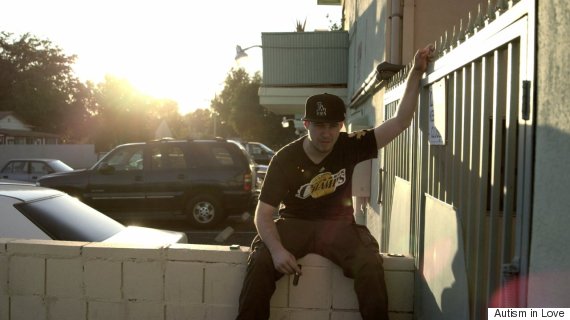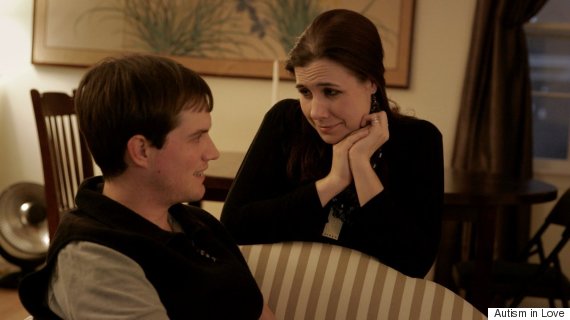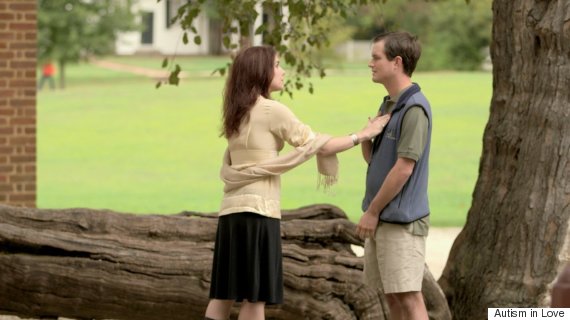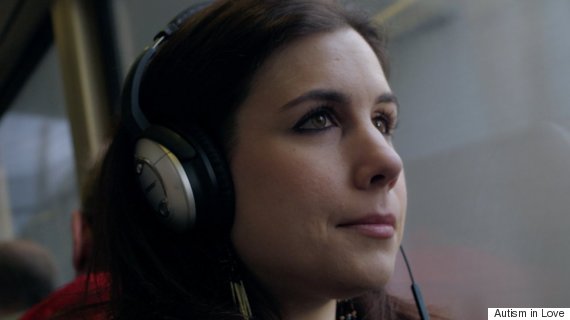
A young man named Lenny lays in bed playing video games. He hasn’t been feeling as happy as usual lately, so his mom comes upstairs to check on him. The source of his woes, he explains, is that he wants a girlfriend, and he doesn’t have one. He considers making an online dating profile. On it, he’d list his interests: cars and sports -- basketball in particular.
“Would you put that Comic-Con stuff on there?” his mom asks.
“No,” he asserts. “I just wouldn’t.”
According to Lenny’s mom, he tries hard to fit in -- to seem “normal” -- and in doing so “takes it too far.” “He just needs to be himself,” Lenny’s mom sighs.
Lenny, like one percent of the world population, has autism spectrum disorder. Like others with his condition, it’s difficult for him to process and respond to social cues, but he feels strongly about his family and loved ones. Though the commonly discussed perception of autism is that it inhibits verbal displays of affection, director Matt Fuller aims to show that the disorder is not at odds with the act of love -- a feeling characterized by empathy and understanding. His first feature-length film, “Autism in Love,” premiered last week at the Tribeca Film Festival.
Fuller spoke with The Huffington Post about his ambitions for making the documentary. "I’m always looking for opportunities to tell stories about characters who want something it seems as though they can’t have," he said. "I don’t know the science. I don’t know about the disorder’s origin. I do know about the challenges many adults with autism face. I know that they want to love and be loved. And, I know they are capable of having meaningful, romantic relationships."


Dr. Paul Wang, Head of Medical Research at Autism Speaks, supports Fuller’s message. “Although we think about autism, and people with autism, in terms of a social impairment, the deficit isn't in desire,” he says. “The deficit is in the skills needed to understand other people's social and communicative behavior, and in expressing oneself through language and social behaviors.”
Another couple in Fuller’s film -- Lindsey and Dave -- combat these challenges daily, and have found success in maintaining an eight-year relationship. In a scene that seems to represent the quotidian conversations that make up their home life, Lindsey explains to her boyfriend that she wears necklaces in order to divert attention from more vulnerable parts of herself. Dave marvels, “I did not know that about you.” Then, he abruptly changes the conversation to his interests: “The weather’s on.” She tenses momentarily -- was he even listening to her? -- but carries on with her day, mostly amused by his fixation with watching The Weather Channel.
“People with autism tend to be very direct in their communication. More than other people, they may say what is on their mind, and say it in a very straightforward and blunt manner,” Wang says, adding that conversational hurdles aren’t unique to those on the spectrum. “Dating and romance require all sorts of complex and subtle social skills. Ask any person who has been turned down for a date, or anybody who can't seem to keep a relationship going long-term."


To navigate these social traverses, Lindsey and Dave compare their relationship to more concrete phenomenon. This approach especially appeals to Dave, who’s a scientist. He relates his feelings for Lindsey to the electromagnetic spectrum: visibly intense at first, and subtler, but stronger, as time goes on. He uses a formula that factors in appearance, personality, and kindness to determine an optimal love connection. In the below video, he explains how he makes sense of love by thinking of it as a force: not tangible, but strongly affecting.
“In general, people with autism do often use language in a more concrete way than others,” Wang notes. “People who are seeking and maintaining a romantic relationship exchange non-verbal cues all the time; they choose their language very carefully and they have to understand what the other person is looking for and trying to convey. For many people with autism, all of these tasks are hurdles.”
But, as Fuller’s touching film demonstrates, there’s ample hope for those on the spectrum to build a steady, loving relationship. As Wang puts it, “the most important message is that people with autism both love, and want to be loved.”
Towards the end of the film, Lenny's perked up. While taking a quick break from a new job he enjoys, he lets the cameraman, and the viewer, know that he's ready to head back inside and get back to work. These newfound responsibilities have granted him the confidence to feel comfortable in his own skin -- a promising step towards interpersonal fulfillment.
Watch a clip from "Autism in Love" below.
